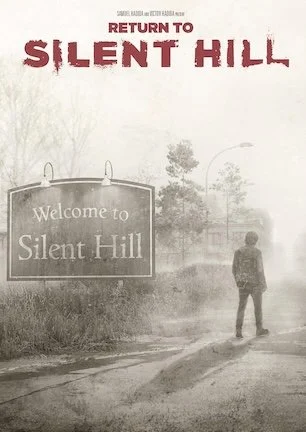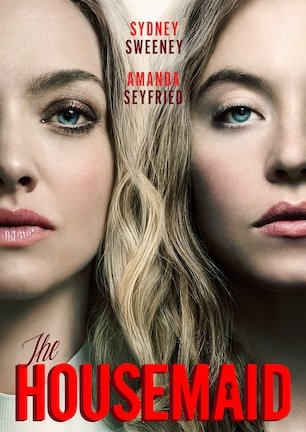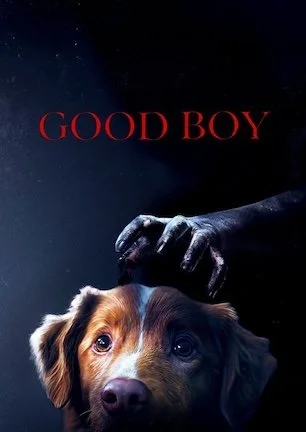Studio: Screambox
Director: RKSS
Writer: Anouk Whissell, Yoann-Karl Whissell, Francois Simard
Producer: Laurent Baudens, Christian Larouche, Gael Nouaille, Didar Domehri, Gregoire Melin
Stars: Alexandre Nachi, Derek Johns, Megan Peta Hill, Vincent Leclerc, Stephane Demers, Benz Antoine, Michelle LeBlanc, Rosemarie Sabor
Review Score:
Summary:
In a world where humans coexist with zombies, a trio of bumbling thieves takes on a wild task to pay a ransom demanded by corrupt corporate operatives.
Review:
When the Canadian collective known as RKSS shot onto the scene with "Turbo Kid" (review here) as their first feature in 2015, few genre filmmakers felt as energetically inventive as Anouk Whissell, Yoann-Karl Whissell, and Francois Simard did with their affinity for apocalyptic action and affection for nostalgic charm. "Summer of 84" (review here) turned the trio toward a darker direction, though they retained a distinct cinematic style that saw them attracting attention and acclaim from bigger names and even wider audiences than before.
RKSS should have remained on this upward trajectory, with an expectation for huge studios to be falling all over themselves to see who would be first to retain their talents for a breakout blockbuster with resources equal to their imaginations. Hopefully, that still happens. In the meantime, however, "We Are Zombies" represents an unfortunate regression for RKSS, although I'd like to believe that says more about the challenges of financing indie projects when Hollywood isn't properly paying attention than it does about their creative abilities no longer being sharp. Nevertheless, since seemingly no one else was knocking on their deserving door, RKSS takes a backwards step with this horror-comedy whose comparative shabbiness makes it look closer to a first-timer's debut on a DIY budget than the work of seasoned craftspeople who've already paid their dues at this lower level.
Based on the Humanoids-published graphic novel by Jerry Frissen and Guy Davis, "We Are Zombies" takes place in the aftermath of an undead apocalypse, except these zombies aren't ravenous, brain-eating creatures. They're docile and often dimwitted, putting them on par with Alzheimer's-addled seniors and panhandling vagrants for how little regard humans have for them. It's an allegory ripe for biting social commentary in a different context. Here, "We Are Zombies" just juxtaposes those ideas once and quickly moves on to less meaningful matters.
An evil corporation (is there any other kind?) makes big bucks collecting unwanted zombies via its "Retirement Services for the Living-Impaired" program. Bumbling best buds Karl and Freddy, along with Karl's moderately more reliable half-sister Maggie, try to steal some of those bucks by intercepting undead pick-ups to turn in to small-time crook Don, who then turns over the zombies for exploitation in a controversial artist's ostentatious shows. But when the three amateur thieves scoop up one reanimated corpse too many, an angry operative for Coleman Corporation lets his agents loose. They kidnap Karl and Maggie's granny, forcing the trio to take on a wild job that'll hopefully net them the money to pay the ransom, if they don't end up undead themselves along the way.
That premise holds promise. The backdrop certainly does, too. I have no way of knowing exactly what happened, but somewhere along the line, compromises must have been made, leaving "We Are Zombies" to let its potential evaporate while coming up short as comedy, as horror, and as a memorable movie overall.
Viewers hoping for heartfelt fun underneath dystopian death and destruction will find "We Are Zombies" to be far cruder and rougher around the edges than "Turbo Kid" was. For starters, the movie shouts out more masturbation jokes than a grade school playground at recess. And if the sight of Mother Theresa resurrected as a snarling zombie doesn't bust your gut, you'll have to make do with a line about looking at your *sshole in the mirror, a bit Adam Sandler already did back in 1993. A recurring gag about Maggie being lactose intolerant doesn't elicit any more amusement than that of a hapless henchman with a habit of accidently firing his gun, either.
Juvenile material like that can only get humor halfway there. "We Are Zombies" can't get the other half out of the acting because the performers don't possess the personality necessary to take the script up as many notches as needed. The newcomer cast does its best with what they're given, and with what their limited screen presence permits. I just can't help but think experienced comedic actors, preferably one or two with a bankable name, could have added the next dimension that's missing from the hacky humor.
Acting isn't the only area where "We Are Zombies" settles for less. The film also slices and dices its story like the production ran out of time and money, then had to wrap up the shoot with what was already in the can. Vincent Leclerc weirdly receives fourth billing after the three leads, even though he only appears in a single scene whose screentime doesn't come close to that of several other secondary characters. Rosemarie Sabor's name doesn't appear until the end credit scroll, and she plays a much bigger role than other actors who have their own solo title cards. A sudden ending that freezes the frame before jarringly jumping to "Two Weeks Later" text and a narrated summary of what we missed in between furthers suspicions that whether they never shot the footage, or whether it fell on the editing room floor, the flimsy final cut can't be at all what the filmmakers originally envisioned.
The upside to all of this apparent corner-cutting is it only takes 75 minutes to race from the end of opening credits to the start of end credits. I respect RKSS' reputation too much to drop this movie's review score into the red, but I'd be lying if I said I was satisfied with what little makes it onto the screen. Until their next effort, I'll cross my fingers and hope some of the wonky decisions resulting in a cheap sheen and cheaper jokes had to do with circumstances where what the directors really wanted simply couldn't compete with economic and scheduling demands out of their control.
Review Score: 50






While the 110-minute runtime could use a trim to maintain more energy, “Redux Redux” is an easy recommend for anyone who enjoys low-key sci-fi.